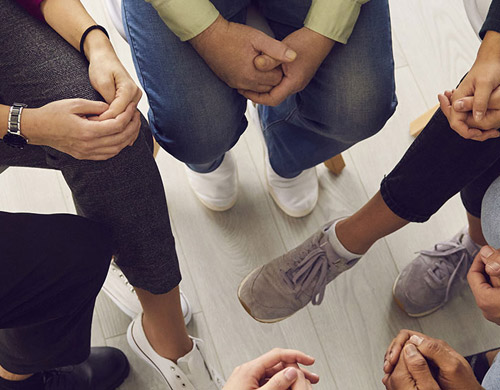When you or a loved one has an alcohol or drug problem you may feel hopeless and struggle to know how to address it. Although addiction is a disease, it is treatable when evidence-based rehabilitation approaches are utilized. Long term addiction recovery is achievable.
On this page, will address how integrating addiction treatment approaches can assist with a sober future for you or a loved one.
What is Addiction Rehab (Rehabilitation)?
Addiction ‘rehabilitation’ is the process of medical care and counseling to address your dependency on substances including illegal drugs, prescription drugs and alcohol. There is no ‘single right’ approach to treatment because it needs to be unique to your requirements and may include medical detox, residential and outpatient support, and long-term aftercare programs.

Facts & Statistics about Addiction in Fontana
Prevalence of Substance Use Disorder, by Drug Type
(IN THOUSANDS)
- 2,7578.5%Any Substance
- 2,0886.4%Alcohol
- 1,0683.3%Ilicit Drugs
- 2060.6%Pain Medication
Drug- and Alcohol-Induced Deaths by Age Group, California, 2016
- Alcohol-Induced
- Drug-Induced
- 18 to 250.5
- 9.6
- 26 to 354.3
- 13.9
- 36 to 6424.2
- 22.9
- 65+23.7
- 9.4
Drug Use, by Selected Type and Age Group California, 2015 to 2016
- 12 to 17
- 18 to 25
- 26+
- Marijuana*13.2%
- 34.0%
- 13.5%
- Misuse of Pain Medications3.5%
- 8.0%
- 4.3%
- Cocaine0.8%
- 7.2%
- 1.8%
- Heroin0%
- 0.4%
- 0.2%
What are the treatment options available in Fontana?
Through consolidating treatments, the primary causes of drug dependence can be tackled and treated. It is vital to treat the symptoms of addiction, but coping strategies need to be considered, in order for you to deal with the triggers that lead to the drug or alcohol dependency.

Private Residential Programs
Residential rehab programs require you to live at the treatment facility and have your treatments on-site. One of the major pros is access to 24/7 treatment and guidance. By displacing yourself from your home and residing at the rehab centre you can protect yourself against the triggers that keep you trapped in the cycle of substance dependence.
Successfully completing your rehab program and avoiding relapse is far easier if you are in a protective and supportive environment. A residential program offers the best outcome when you have a dual diagnosis, an intense substance dependency or co-occurring illnesses. An inpatient program will support you with getting sober, but maintaining sobriety will require constant effort as the first year of recovery are usually difficult. On completion of your inpatient addiction treatment program, you must transition towards more independence as you consider your goals for your new sober life.
Do You Need Help?
Start your recovery today.

Sober Living Programs
Sober living programs help individuals in recovery develop greater control over their lives, with support and some guidance. These programs include:
- A house manager checking in on you daily
- Working on guidelines for good behavior in recovery
- Getting support and companionship from other people in recovery who have similar challenges
Detox Only Programs
Participating in a detoxification program is a crucial stage in rehab as it helps address your physical dependency by removing substances from your body. You usually experience withdrawal symptoms as a natural reaction to the absence of drugs or alcohol in your system. Withdrawal symbolizes the start of the process of rehab, and should always be followed up by overcoming the main causes of your dependency, so you do not repeat the same damaging pattern of behaviors.
Once the substance has been eliminated from your system you may still experience cravings for it, as well as some withdrawal symptoms for some time afterwards. Rehab will help you learn life-changing skills that are designed so that you do not relapse.
Outpatient Programs
Outpatient rehabilitation programs are typically more flexible and allow you to have therapy at the treatment center and continue important job or family commitments.
Outpatient programs help you with:
- Education around substance misuse
- Counseling services and therapy with the use of group support or one-to-one sessions – The expected duration of outpatient treatment is 3/4 months and may last longer than a year, this is depending on your individual needs.
Paying for Private Treatment
If you want to enroll for private rehab, you will need to pay with your own funds or make a claim via your health insurance provider. Many insurance providers will allow you to claim at least some of the costs of rehab, including a drug or alcohol detox, a treatment program, and any on-going support services you may require.
The type of cover given will depend on the agreement details of your policy as well as your provider’s terms of agreement. We recommend that you double check on the amount covered for treatment prior to enrolling in a program.
You can visit our Verify Your Insurance page for more details on the cover you have access to. If you decide not to claim from your policy, you must pay for your treatment. You may be able to opt in to a payment plan if the total cost is too much upfront.
State Funded Programs
State-funded rehab programs have been designed to assist individuals without the financial resources to tackle alcohol or substance dependence. With the use of state funding and Medicaid, these programs may support your recovery by offering:
- Medically-supervised alcohol/drug detox
- Rehab treatment and relapse prevention services.
State-funded rehabilitation programs are intended to support individuals with little disposable income or those with no health cover. To enroll you will need:
- Proof that you are a resident of the US
- Proof of income
- Proof of living arrangements
- Medical details about your addiction
You can discover more about the application process here.
This pdf document contains your state agency’s contact details.

State-funded options in Fontana:
Kaiser Permanente Hospital Chemical Dependency Recovery Program
17046 Marygold Avenue, Fontana, CA 92335
909-427-5128
www.kaiserpermanente.orgSB County Dept of Behavioral Health CHOICE Program
17830 Arrow Boulevard, Fontana, CA 92335
909-356-6730
wp.sbcounty.gov/Grace Hope Treatment and Recovery Centers Inc
7446 Lime Avenue, Fontana, CA 92336
909-275-3156
www.gracehoperecovery.com
Maintaining Addiction Recovery in Fontana
Sustaining recovery can feel a challenge once you finish your treatment programme. The rehab environment was controlled and safe, and you were given professional support. When you leave, you may encounter new challenges or triggers that test your coping skills in ways you may not have anticipated. Long term recovery is more challenging if you have a severe dependency or if you return to your new life without social support structures in place. Guidance and aftercare support is integral in the early stages of recovery to help prevent relapse.
The following AA/NA meetings are available in Fontana:
KAISER HOSPITAL
WNFU Young Addicts Group, Discussion/Participation,
Non-Smoking and Open: 17046 Marygold Avenue,
Fontana, CA 92335
Saturday: 10:30 am
https://www.drugstrategies.org/AA - Speakers Fontana
No Smoking: 17046 Marygold Avenue, Fontana, CA 92335
Wednesday: 6:00 pm – 7:00 pm
https://alcoholicsanonymous.com/AA - Keep It Simple Fontana
Discussion: 8316 Sierra Avenue, Fontana, CA, 92331
Friday: 7:30 pm – 8:30 pm
https://alcoholicsanonymous.com/
Aftercare & Alumni Programs
An aftercare program continues to provide recovery support when you return to your home environment. Because relapse rates can be as high as 60%, and because life is difficult at the best of times, aftercare support is an invaluable lifeline to support your recovery long-term.
Once you are close to completing your rehab program, you will consider the services most beneficial to your needs long-term, and a relapse prevention program will be created to help you sustain it. Alumni programs are a useful benefit to completing rehab and provides you community access to peers and staff.
You can come to Alumno events, join initiatives and get support and encouragement from other individuals who are also in recovery as well. You may also like to return the favor by supporting others in recovery.

Support Groups (Fellowship Meetings)
Support groups remain vital to long-term sobriety as they monopolize on the importance of social interactions in addiction recovery. By joining a group like Narcotics Anonymous or Alcoholics Anonymous, you can follow the 12 steps by attending local meetings for ongoing support. At support group meetings, you can share and listen to experiences. By building friendships and staying committed to the 12-steps, individuals in recovery will feel able to take responsibility for themselves and protect those around them.
Support for Families & Children Affected by Addiction
Some people living in an addicted household are damaged more than others. The individual with the addiction issues needs support, but other members of the family need assistance too. Family support groups have two key benefits: you can help yourself and the person with the addiction.
Examples of Family and Child Support Groups include:
- Parents of Addicted Loved Ones
- SMART Recovery Family & Friends
- NAMI Family Support Groups
- Al-Anon
- Families Anonymous
- Alateen
- Nar-Anon










